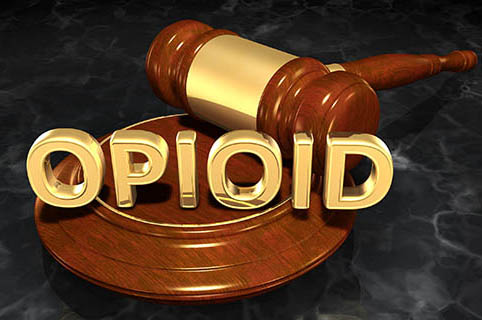DES MOINES – Iowa Attorney General Tom Miller has reached an agreement in principle on key financial terms with opioid maker Teva, which would provide up to $4.25 billion to participating states and local governments.
While critical details of the settlement remain the subject of ongoing negotiations, Teva disclosed the first details of the agreement ahead of its earnings announcement Wednesday.
“This is another major step in addressing the opioids crisis,” Miller said, noting that Iowa was a leading state in negotiating today’s agreement with Teva. “We expect these funds to make a significant difference in preventing fatal overdoses and treating opioid addiction disorder.”
Teva, an Israel-based drug manufacturer, makes Actiq and Fentora, which are branded fentanyl products for cancer pain, and a number of generic opioids including oxycodone.
States alleged that Teva:
- promoted potent, rapid-onset fentanyl products for use by non-cancer patients;
- deceptively marketed opioids by downplaying the risk of addiction and overstating their benefits, including encouraging the idea that signs of addiction are actually “pseudoaddiction” treated by prescribing more opioids; and
- failed to comply with suspicious order monitoring requirements along with its distributor, Anda.
The parties have agreed on the following financial terms:
- Teva will pay a maximum of $4.25 billion in cash over 13 years. This figure includes amounts Teva has already agreed to pay under settlements with individual States, funds for participating States and subdivisions, and the $240 million of cash in lieu of product described below.
- As part of the financial term, Teva will provide up to $1.2 billion in generic naloxone (valued at Wholesale Acquisition Cost or WAC) over a 10-year period or $240 million of cash in lieu of product, at each State’s election. Naloxone is used to counteract overdoses.
- The settlement will build on the existing framework that states and subdivisions have created through other recent opioid settlements.
A final settlement remains contingent on agreement on critical business practice changes and transparency requirements.
“Leading a coalition of states to hold accountable the manufacturers of opioids is a priority for our office, which is why I have directed substantial resources toward this effort,” Miller said. “We are dedicated to ensuring that help is available to Iowans who are victims of the opioid epidemic.”
The negotiations are being led by the following states: California, Illinois, Iowa, Massachusetts, New York, North Carolina, Pennsylvania, Tennessee, Texas, Vermont, Virginia, and Wisconsin. While New York is among the 12 states that negotiated this proposed settlement framework, Teva and New York are still engaged in further negotiations.




